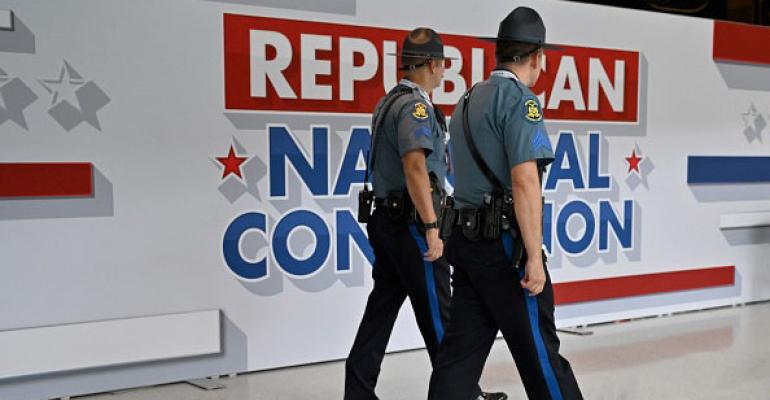Risk management is a high-stakes responsibility for any conference team. But after the shooting at a Trump campaign rally in Pennsylvania on July 14, all eyes are on emergency preparedness for this week’s Republican National Convention
The event is bringing an estimated 50,000 people to Milwaukee, Wis., where crisis training has long been in the works for the event. Media outlet C-Span talked to Dr. J. Marc Liu, with the Wisconsin Healthcare Emergency Readiness Coalition, about preparations for the RNC among the group’s hospitals, public-health agencies, emergency medical services, emergency management, and other organizations in the southeast Wisconsin region.
While few meeting professionals face the high-profile risk issues of a political convention, Lui’s remarks in C-Span’s July 13 video are relevant for planners to consider on a scale appropriate to their own events
Lui emphasized that “like with anything else, practice and planning are key” for emergency preparedness. “There's been a lot of work going on over the last year—and even years—with planning drills and exercises to prepare for events.”
Building off Milwaukee’s experience hosting the 2020 Democratic National Convention, Lui said the group has been getting together for “planning, education, and exercising” in order to come up with coordinated plans for communicating with one another. “It’s also a good way for us to learn about each other's areas of expertise and which resources we have available to bring to the table.”
The group has two kinds of training: Table-top exercises where everyone is in the same room to walk through their roles and resources, and decide on how to coordinate in an emergency. Then, “we take it to full-scale, functional exercises, where we actually practice. We've been doing exercises for the last 10 months; that started with table-top, and various agencies and organizations have been doing functional exercises and ‘full-scales’ more recently.”
Event-security case study: Evolving Risk Management for Events, Straight from the Source
While most meeting planners will never face anything worse than medical emergencies, technology failures, and weather disruptions, Lui’s advice is to remember that “emergency preparedness is a team sport.” In addition to the event coordinator, consider the role of the venue’s manager, security personnel, technical support, staff, and emergency services.
“Everyone has an area of expertise,” says Lui. “Everyone has resources that they can share, and so a lot of coordination and collaboration and input from all the different disciplines are needed to have a cohesive preparedness plan.”





